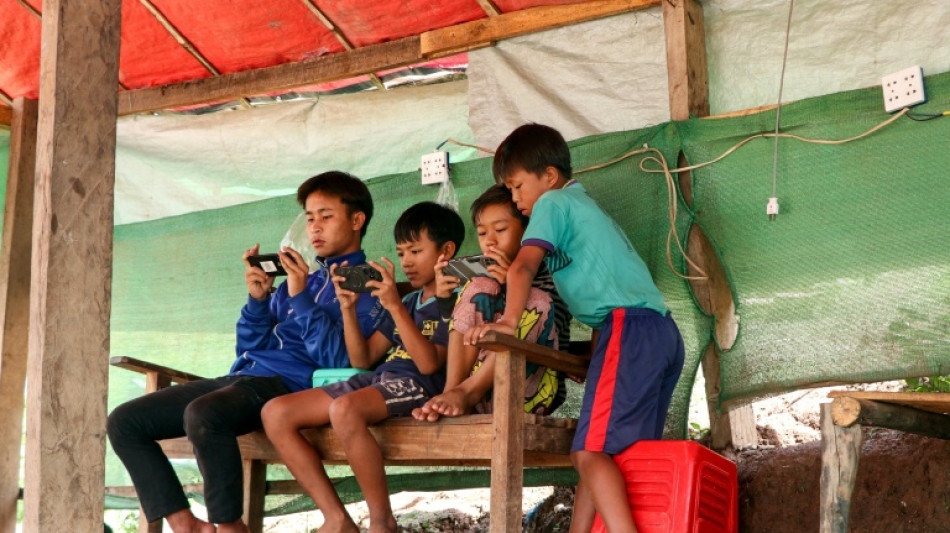
-
 Verstappen wins 'incredible' Azerbaijan GP as Piastri crashes out
Verstappen wins 'incredible' Azerbaijan GP as Piastri crashes out
-
Embattled Turkey opposition re-elects leader at party congress

-
 Verstappen wins Azerbaijan GP as Piastri crashes out
Verstappen wins Azerbaijan GP as Piastri crashes out
-
Roma outcast Pellegrini comes in from cold to win derby with Lazio

-
 Lyles seals world double as USA men win sprint relay
Lyles seals world double as USA men win sprint relay
-
Jefferson-Wooden completes world sprint treble with US relay win

-
 McLaughlin-Levrone claims second world gold in relay
McLaughlin-Levrone claims second world gold in relay
-
Reusser ends long chase for gold with women's world title
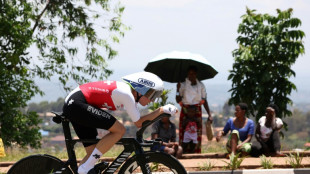
-
 Swiatek recovers from slow start to win Korea Open title
Swiatek recovers from slow start to win Korea Open title
-
Hocker wins world 5,000m as Ingebrigtsen finishes empty-handed

-
 Kenya's Odira upsets Hodgkinson to win world 800m gold
Kenya's Odira upsets Hodgkinson to win world 800m gold
-
Kenyan duo Sawe and Wanjiru triumph at Berlin Marathon

-
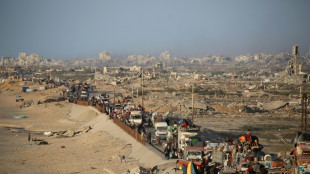 UK to recognise Palestinian state ahead of UN debate
UK to recognise Palestinian state ahead of UN debate
-
Olympic champion An dominates in repeat China Masters badminton win

-
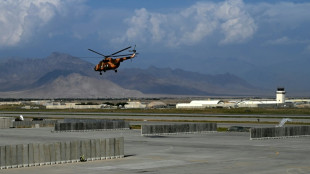 US deal on Bagram base 'not possible' says Afghan Taliban official
US deal on Bagram base 'not possible' says Afghan Taliban official
-
Kenya's Sabastian Sawe wins men's Berlin Marathon

-
 One more world record from Duplantis and there's no Christmas party, jokes Coe
One more world record from Duplantis and there's no Christmas party, jokes Coe
-
Guinea votes in constitutional referendum boycotted by opposition
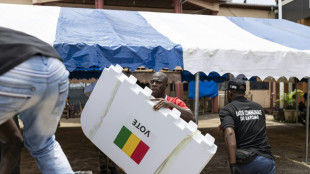
-
 Athletics gene testing 'here to stay', warns Coe
Athletics gene testing 'here to stay', warns Coe
-
'Finally back home': Rebel octogenarian nuns reclaim Austrian convent

-
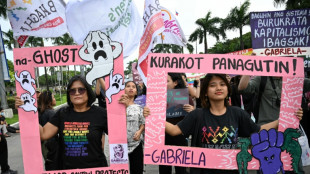 Evacuations in Philippines, Taiwan as super typhoon nears
Evacuations in Philippines, Taiwan as super typhoon nears
-
Peru anti-government protesters clash with police
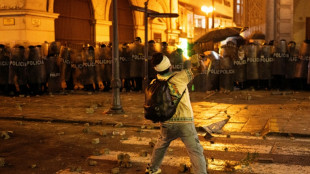
-
 Fritz topples Alcaraz as Team World surge into Laver Cup lead
Fritz topples Alcaraz as Team World surge into Laver Cup lead
-
Fiji beats Japan 33-27 in Pacific Nations Cup rugby final

-
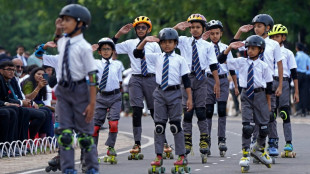 India's school of maharajas now educating new elite
India's school of maharajas now educating new elite
-
With cash and aid, Saudi Arabia pursues soft power push in Syria

-
 PSG star Dembele tipped to beat Yamal to win Ballon d'Or
PSG star Dembele tipped to beat Yamal to win Ballon d'Or
-
Guinea to vote in constitutional referendum boycotted by opposition
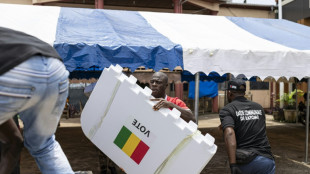
-
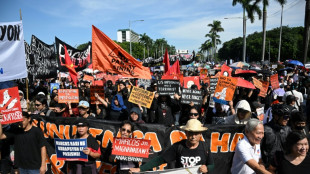 Thousands take to streets as Philippines protests flood control fraud
Thousands take to streets as Philippines protests flood control fraud
-
Raleigh sets homer mark for Mariners in MLB win at Houston

-
 Floating wind power sets sail in Japan's energy shift
Floating wind power sets sail in Japan's energy shift
-
Crowd buzz in Tokyo makes up for Japan track and field flops

-
 Messi brace lifts Miami in 3-2 MLS win over DC United
Messi brace lifts Miami in 3-2 MLS win over DC United
-
Apprentices breathe new life into historic Savile Row

-
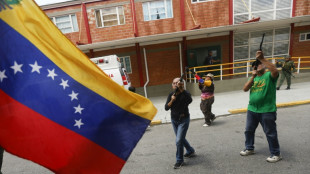 Venezuela offers military training to public amid Trump threats
Venezuela offers military training to public amid Trump threats
-
In New York, an anti-fascist superhero rises -- at the Met

-
 Warmer climate boosts north German vineyards, for now
Warmer climate boosts north German vineyards, for now
-
Trump issues vague threat to Afghanistan over Bagram air base

-
 De Minaur, Cerundolo propel Team World to Laver Cup lead over Europe
De Minaur, Cerundolo propel Team World to Laver Cup lead over Europe
-
Duplantis and McLaughlin-Levrone lit up world championships

-
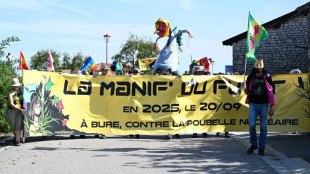 French nuclear waste project sparks protest
French nuclear waste project sparks protest
-
Man Utd made win over Chelsea too 'complicated' says Amorim

-
 White House says $100,000 H-1B visa fee to be one-time payment
White House says $100,000 H-1B visa fee to be one-time payment
-
'Shocked, devastated': Gaza City assault leaves Palestinians traumatised
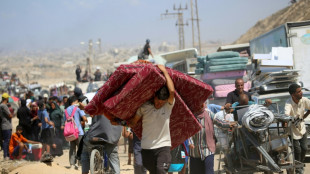
-
 Lyon edge Stade Francais in wild try-fest to stay top in France
Lyon edge Stade Francais in wild try-fest to stay top in France
-
Russia's USSR-era rival to 'decadent' Eurovision born anew

-
 Mourinho celebrates Benfica return with convincing win
Mourinho celebrates Benfica return with convincing win
-
Man Utd earn vital win against Chelsea as Liverpool stay perfect

-
 Juventus climb top in Italy with draw at Verona
Juventus climb top in Italy with draw at Verona
-
Mitchell hails 'phenomenal' Kildunne as England reach World Cup final


Making connections in Myanmar's fractured state
In a riverine battleground in western Myanmar, an entrepreneur hunts for reception using a makeshift bamboo antenna, his payphone kiosk providing locals a lifeline to connect with their loved ones.
In commercial capital Yangon, a student flicks through apps that cloak his online identity so he can skirt social media bans that accompanied the 2021 coup.
And in the mountainous east, customers at an internet cafe feverishly scroll for news from the outside, dependent on Elon Musk-owned satellites.
Four years of civil war between Myanmar's military and its myriad opponents have shattered communications networks.
In response, people have resorted to methods ranging from the old-fashioned to the ingenious to the hyper-modern.
"I don't want to be cut off from the world," Hnin Sandar Soe, 20, said at an internet cafe in eastern Karenni state where she reads headlines, studies online and reaches out to friends and family.
"It always brings a warm and comforting feeling to keep in touch with them."
- Payphone lifeline -
Myanmar has been under military rule for most of its post-independence history, but a decade-long democratic thaw starting in 2010 was accompanied by an astronomical growth in connectivity.
That year, SIM cards cost $1,000 and fewer than five percent of the population owned a mobile phone, according to World Bank figures.
Seven years later, that figure was 82 percent, as citizens seized on the rapidly developing cellular networks and novelty of free speech.
But since the military toppled the civilian government and ignited the war, there has been a slide back into digital darkness.
The junta has banned a slew of apps, conflict has eviscerated infrastructure and blackouts are weaponised by all sides.
In western Rakhine state, where civil war has intensified long-running conflict, reliable communications are now a dim memory.
Witnessing his neighbours hiking hills for mobile signal, Saw Thein Maung founded an old-fashioned payphone business six months ago.
Today, he operates three phones wired to antennas on 10-metre (33-foot) poles that wobble in the wind above the delta town of Ponnagyun.
The business earns him a relative fortune of up to $23 a day as customers clamour to dial out.
"They don't want to stop speaking with their children elsewhere. They don't care how much they have to pay," Saw Thein Maung said.
Customer Tun Lin, 27, uses the payphone to ring city-dwelling contacts to enquire about job openings.
"Making phone calls is the only way," the unemployed former NGO worker said.
- Satellite solutions -
Activist group the Myanmar Internet Project (MIP) says there have been nearly 400 regional internet shutdowns since the junta takeover.
What it calls a "digital coup" has slowed emergency responses, hampered education and hobbled the economy.
"The public is experiencing hardship as a result of this insult added to injury," said MIP spokesman Han, who goes by one name. "They are looking for all kinds of ways to resist."
In Karenni state, an internet cafe with a glowing blue router offers an oasis of connectivity, bypassing restrictions by tethering to Musk's Starlink satellite system.
The junta has not licensed the technology, meaning it is illegal to operate.
Cafe owner Marino had it smuggled over the border to his shop, where the cutting-edge web link contrasts with the corrugated roof and tarpaulin walls.
"We need the internet to know what is happening in our country or the world and if our friends are doing well or not," he said.
Nearby, an elderly woman chatted on her phone and a gaggle of teens played online games.
- Dodging disconnection -
Major cities under junta control retain reliable internet, but Facebook, Instagram, X and WhatsApp -- where opposition groups have typically organised -- are all banned.
In Yangon, virtual private networks (VPNs) provide a way to dodge the bans.
After the junta started blocking VPNs last year, a whisper network rippled through the city, with people sharing free options that still function.
One week the best is 1.1.1.1, before JumpJumpVPN emerges as more popular, and then everyone moves to Now VPN.
But the junta security forces now conduct spot checks for VPNs, said one 23-year-old student, speaking on condition of anonymity because he uses the outlawed apps.
"Other countries have internet freedom and young people can learn freely," he said. "It is different in our country where everything is restricted. I feel our rights are blocked."
He remains undeterred. "We young people have a mindset that we will overcome any restrictions."
A.Kunz--VB
